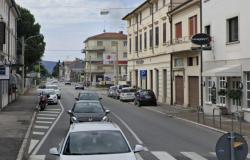The illegal work has reached an increasingly significant weight, both at a national level but above all in Sicilythe region that has one of the highest figures on the peninsula.
A sign of an economy that evidently doesn’t work, there are in fact over 250 thousand illegal workers, a huge number, which portends continued decay. Sicily climbs the rankings, according to last year’s Istat data processed by the research office of Cgia of Mestreis in third place among the regions in absolute terms with 17.9%, surpassed only by Calabriawith 125,000 illegal workers and a rate of 20.9%, and from Campania, with 332,330 workers and an irregularity of 20.9%. In particular, based on the data that emerged at the regional level, the negative record for non-regular independent workers it is held by Palermo (21,800), followed closely by Catania (21,500). If we look in more detail, the sectors most affected by the phenomenon are Agriculture (37.0%) and Construction (22.0%), while for extended Manufacturing there is a reduced incidence of irregular work (11.3%) .
A negative picture that does not differ greatly from what the situation was a few years ago, as we had seen (CLICK HERE) once the most acute phase of the Covid-19 pandemic had passed, the negative side effects for major labor sectors they had not abated.
As if that wasn’t enough from the next one June 30th it will no longer be possible to benefit from the contribution exemption provided for by the measure Southern decontribution. A failure to extend that “it risks an uncontrolled increase in illegal work on construction sites”. The alarm was raised by president of Ance Palermo Giuseppe Puccio. A measure, which provides for a contribution relief for companies in the south to protect employment levels, will expire soon and it has been decided not to extend it. “We share the thoughts that the president of Confindustria Sicilia, Gaetano Vecchio, has repeatedly expressed on several occasions – continues Puccio – highlighting how this would consequently cause thousands of layoffs”.
“What I would like to underline is that the cost of labour, for us construction workers, is even higher than that of industry and commerce and losing contributions on company employees risks eliminating certain guarantees for workers, increasing illegal work and to lower safety standards on construction sites”.
“This measure – concludes Puccio – it has been a useful support for businesses and we believe that not extending it is a serious mistake”.
As provided for by the 2021 Budget Law, the measure was introduced to support employment in the regions of Southern Italy by guaranteeing businesses contribution exemption of the 30 percent for each employee. It was created as a contribution relief for companies in the south and aims to contain the effects of the Covid-19 epidemic on employment and to protect employment levels in areas with serious situations of socio-economic hardship.
During question time at House of Representatives of the May 15, 2024the Minister for European Affairs, the South, cohesion policies and the Pnrr, Raffaele Fittodeclared that Decontribuzione Sud cannot be extendedby choice not of the Government, but of the European Commission which will not extend the Temporary framework for Ukraine.
“The government“, adds the Minister, “is working effectively to make similar measures possible, which already find in part, within the Cohesion decree, specific interventions in this direction, to ensure that the resources to be used for Southern Italy are not used in a thousand streams of spending and pulverized into a thousand small interventions, but make more precise choices”.
What needs to be done? Is the minimum wage the solution?
A condition, that of the underground economy, which requires structural solutions. In particular in the sectors of agriculture, domestic work and some sectors present in the minimum services tables are much lower than the proposed threshold of the minimum wage. Many entrepreneurs, in fact, would be forced to adjust the minimum wages upwards, they could be tempted to fire or reduce the hours of some of their employees, “forcing” them to work anyway, but “off the books”, according to what is stated the CGIA which is in favor of the introduction of the minimum wage, “provided that within it, based on the various national collective bargaining agreements, account is taken of the items that constitute the overall economic treatment, from benefits, to allowances, to bonuses, to seniority increases”.
“If the minimum wage of 9 euros gross per hour were introduced by law, there could be something serious danger of seeing irregular work increase in the countryparticularly in sectors where the table minimums are currently much lower than the threshold proposed by the bill presented in recent days to the Chamber”.
Those at risk are certainly those sectors ‘weakened’ by one unfair competition very aggressive practice practiced by companies that have always worked completely ‘off the books’”. We inevitably talk about agriculture, but also about numerous other sectors. What is especially worrying is the island which is close to numbers that are not yet decreasing.







